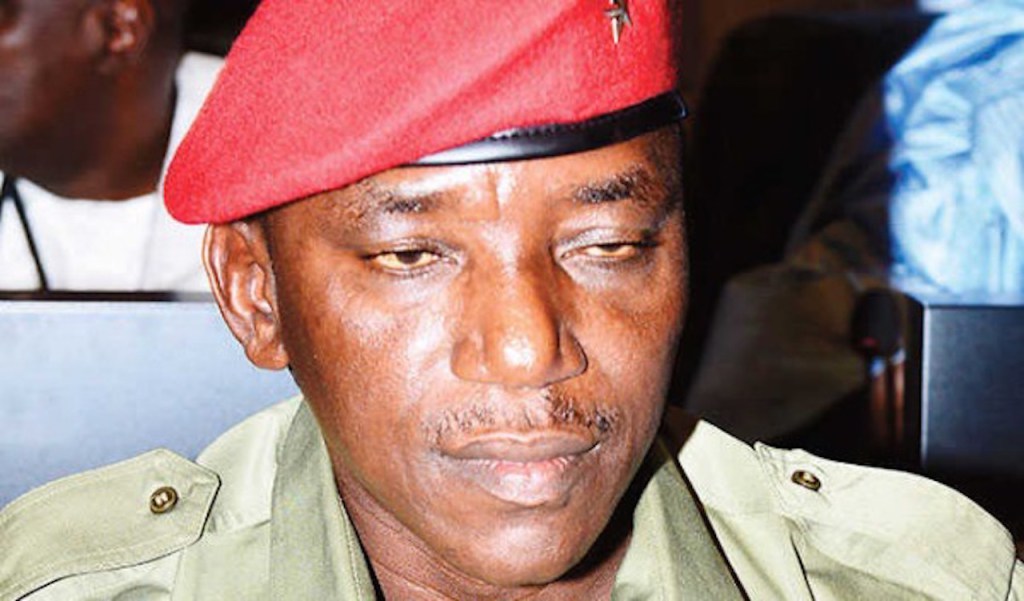
In order to examine the unfolding disgrace in Nigeria’s athletics space, it is important to establish the facts.
In May 2017, the International Association of Athletics Federations (IAAF) transferred the sum of $150,000 to the Athletics Federation of Nigeria (AFN) as payment of the annual grant due to all member federations.
The trouble is that this amount transferred was in error. In fairness, it is a common enough sort of error: an extra zero was entered, and suddenly the AFN was $135,000 richer than it should have been.
They did not, as one might expect, point out the oversight, choosing to hold their peace. With the approval of the Sports Ministry, the money was promptly appropriated for purposes which, to this day, remain unclear.
Sure enough, the error was noticed – that sort of money does not simply disappear – and several letters were sent by the IAAF requesting the surfeit be refunded. In November 2017, an actual meeting was held between both parties. By March of the following year, erstwhile CEO Olivier Gers had gotten involved personally. The refund was not forthcoming.
By June 2018, the Ministry of Sports sent word that they were ready to give back 50 per cent of the sum, and even though the IAAF was willing to accept that for a start, the part-refund also did not materialise.
Fast forward to the present day, and the global athletics body has understandably run out of patience. This time, they are threatening to bring sanctions against Nigeria, which might include a worldwide ban from competition, a disastrous outcome considering that the Olympic Games is scheduled to hold in Tokyo next year.
The reaction to this chain of events will likely range from humour to incredulity, depending on who reads it. All over the world, the mental association of Nigeria with financial rascality is not a new one.
It is an image that the country has tried to shed through various media campaigns and by swiftly pointing to the honest accomplishments of its citizens in diaspora. The President Muhammadu Buhari has made a very strong outward show of dealing with the problem of corruption, and has won two elective terms, despite his health challenges and a floundering economy.
Yet, it says a lot that, for most Nigerians still, this sort of behaviour is all too familiar. What makes this surprising is the stakes, and what it says of, not just about the mentality of those who hold high offices, but also their perception of how the world works.
The only reason the top brass at the AFN and the Sports Ministry would feel comfortable treasuring such a sum and expecting no repercussions is that they projected their own lack of accountability onto the IAAF. In much the same way that they believe whatever money is present in their coffers is available to be lavished with no oversight, they must have assumed that it would not be missed.
Or perhaps even that is needlessly complex, and it is simply a case of blinding greed. Whatever the case may be, it is a sad commentary on the state of Nigerian society. With Sports Minister Solomon Dalung at the end of his tenure, it now seems unlikely that the two-week deadline, given on the 14th of May, will be met.
Regrettably, the big losers will be the athletes themselves, who have at sundry times cried out over neglect and a lack of support from the Federation. There might have been some succour in the notion of some sort of Robin Hood ideal behind the AFN’s avarice if even some of that money had gone toward improving the conditions of Nigeria’s athletes over the past two years.
Instead, not only will they be left feeling a strong resentment, but they might have the global stage that is the Olympics taken away from them altogether. For a country that demands as much sacrifice from its athletes as Nigeria, it certainly does not do a good job of making it worth their while.
For Nigeria, it is yet another hit for the country’s credibility in the global polity.
There is a level of ridiculousness that can be dismissed with a laugh and a wag of the finger, but there is a world of difference between being laughed with and laughed at. Africa’s most populous country is firmly planted in the latter category.
END

Be the first to comment